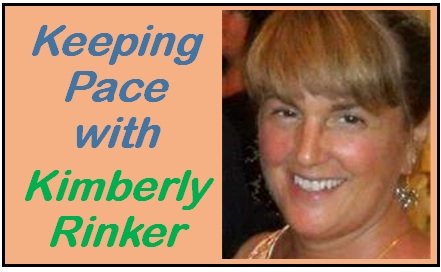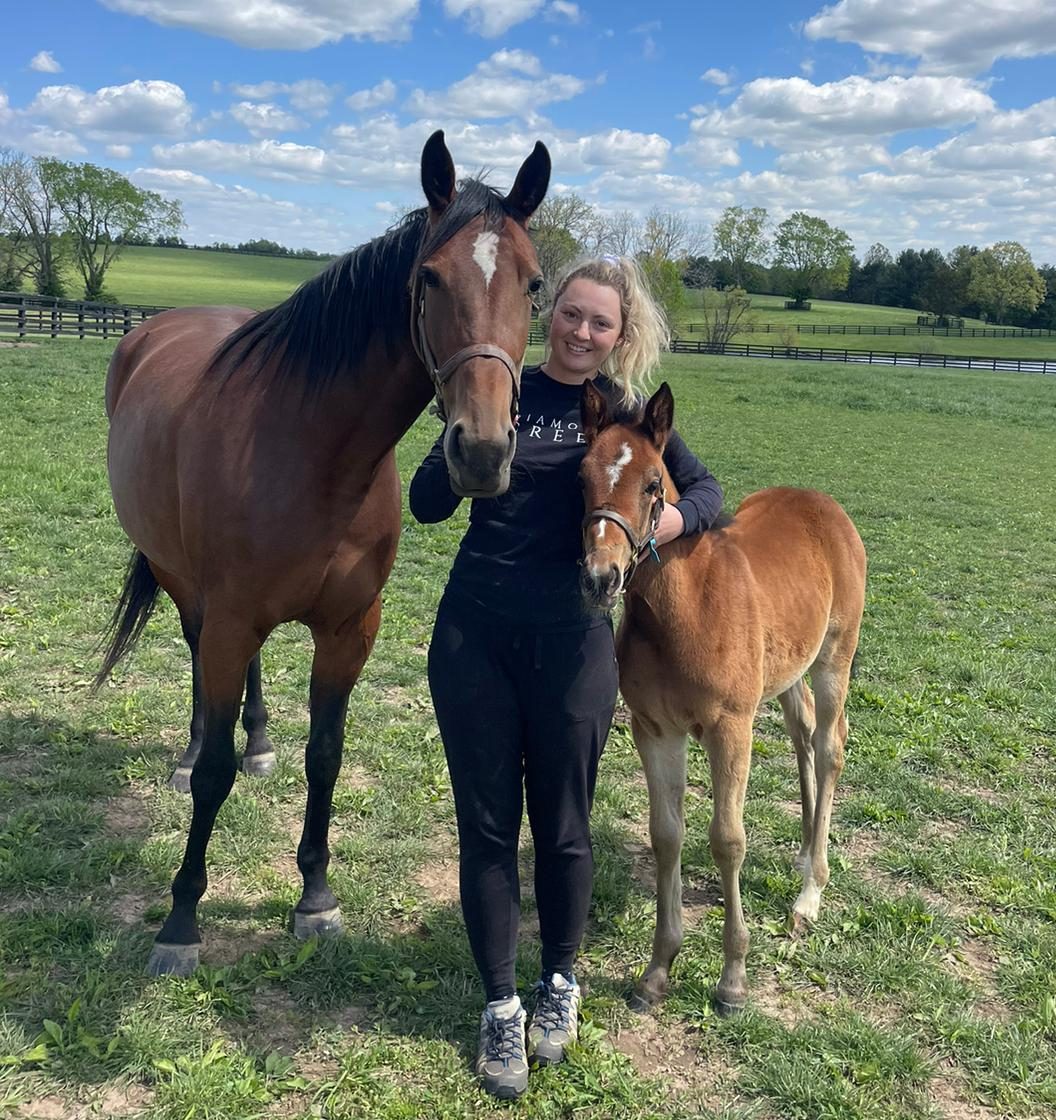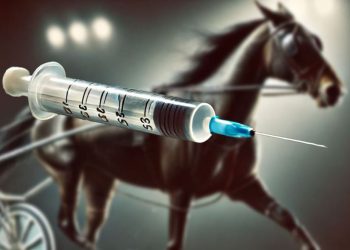Nicole Thomas—a lifelong harness racing enthusiast and industry breeding manager—is having the time of her life at Diamond Creek Farm of Kentucky.
The 29-year-old New Zealand native, who was born in the northern hamlet of Nelson, NZ on the country’s South Island, moved to Christchurch during her high school years and to work for Nevele R Stud, as an apprentice.

“That got me hooked on the business,” Nicole offered. “I really fell in love with the breeding end of the industry. Watching the foals grow and develop and seeing them become racehorses; dealing with them from day one and seeing them mature—that’s the best part of the business.”
Nicole’s father Ian is a farrier by trade, while her mother Sue is a self-employed accountant. Brother Jason helps train the family’s 17 pacers and trotters who race primarily on the South Island.
Nicole is currently the Stallion Manager for Wai-Eyre Farm, also located in Christchurch, and has been with that breeding facility since 2012. She was this year’s recipient of the Canterbury Harness Racing Award—which his given annually to any person in New Zealand harness racing for outstanding service and dedication to the industry.
“You can be a breeder, caretaker, trainer, or driver,” Nicole explained. “They sponsor you for a trip overseas and donate $1,000 to your travel expenses. My boss also generously gave me some holiday money. When I was looking at my choices, and speaking with the sponsors, Diamond Creek definitely stood out as my best option.”
“Diamond Creek has our shuttle stallions and a lot of mares, and they’ve been fantastic to deal with,” Nicole said.
Since arriving in the United States on April 2, Nicole has not only spent the last three weeks in Kentucky but has gotten to see a bit of America as well, on her first trip across the Pacific Ocean.

“I flew into Chicago and was able to spend half a day in the city, seeing the sites,” she noted. “Chicago was crazy busy, and I was downtown and visited Millennial Park, before flying to Pennsylvania.”
Nicole spent ten days at Diamond Creek’s Pennsylvania facility before heading to Lexington on April 12th.
“It was great to see the Pennsylvania farm, and to learn the technique of processing semen,” she reported. “The stallion side of things is pretty similar to the way we do things back home, but when it comes to attending to the mares, there are wee differences. We don’t use stocks for instance, we line up mares and scan them all pretty quickly. Also, the names we use for things can be different and cause some confusion in the beginning, but in the end, it all settles in pretty quickly. For instances, we refer to palpating and breeding, as ‘serving,’ and what you folks call trailers, as in horse trailers, we call ‘floats.’”
“I had always wanted to work at a Kentucky Farm, so being at Diamond Creek worked out perfectly for me,” Nicole continued. “The program here offers me a lot of opportunities to learn about different ways of doing things, especially when it comes to the use of various medications to help broodmares and foals.”
Because she has a home and because her talents as stallion manager are needed back in New Zealand, Nicole will be in the United States only until May 24.
“Obviously, I can’t stay here as long as I might have liked, as I have a house with a mortgage and my work at Wai-Eyre Farm,” she explained. “This has been a terrific opportunity for me. Most days I get to Diamond Creek at 5:30 in the morning and start working with the newborns, before we start scanning mares around 6 am. Then we check in on the rest of the mares, and I’m usually here until 3 or 4 in the afternoon—it just depends upon how the day is going.”
Nicole says that she appreciates that the Diamond Creek staff really make it a point to work with the foals soon after they arrive into this world.
“Besides a lot of the medical alternatives; different ways of treating horses, one thing that impresses me, is that the staff handle the foals a lot earlier than they do back home,” Nicole said. “They also really track the foals’ progress, and I think it’s a better system because the horses end up being trusting and easier to work with from a much younger age. I like to be able to pet a foal or a young horse, and get close to them, and by working with them often as foals, it makes it so much easier once they start to mature.”
Nicole said that she’s looking forward to seeing Pebble Beach (Downbytheseaside) p, 3, 1:48.1s ($1,720,875), who stands at Diamond Creek, stand his first season in New Zealand this fall.
“I saw him collected the other day and he’s a very good-looking horse,” she said. “It will be fun to be back home and to relate the different ways of doing things. I feel like I’ve learned a lot from each other—from the girls at the farm who have been so great to me—and vice versa. The atmosphere is just so different from what I’m used to; the racing is a lot bigger and there are so many people involved. The girls here at Diamond Creek took me to the Kentucky Horse Park for the Range Rover Three-Day Event this past weekend, and we also went to Keeneland for an afternoon, which was a great experience. This is an experience I will treasure forever, and hopefully, I’ll be able to come back here one day.”
by Kimberly Rinker, for Harnesslink

 USA
USA Canada
Canada Australia
Australia New Zealand
New Zealand Europe
Europe UK / IRE
UK / IRE



